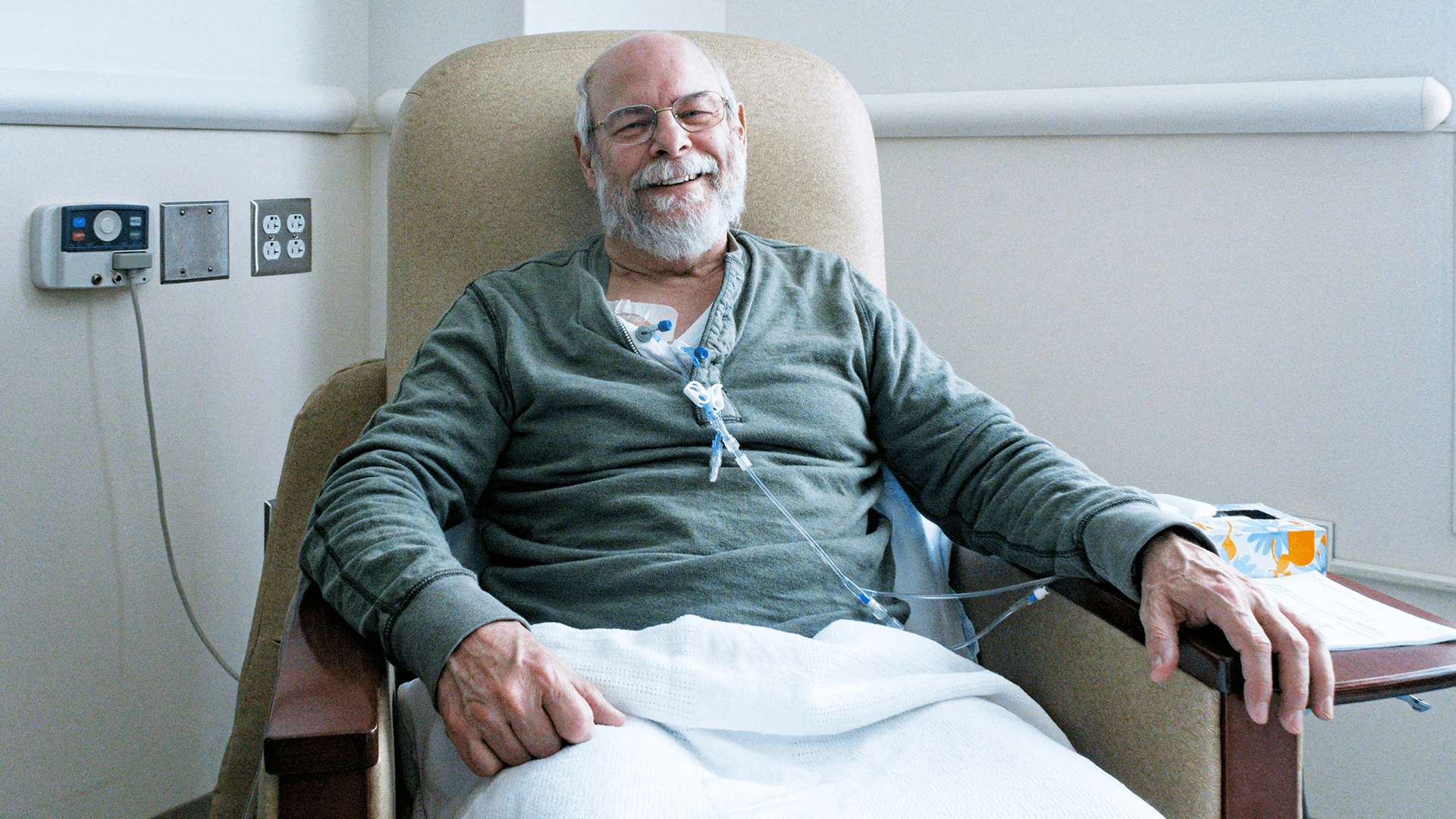Telling Others About Your Cancer
How to tell others about your cancer diagnosis is a personal choice. There’s no one right time or way to do it. Some may openly share their experience with others. Some might decide not to share any information—at least not right away.

It can be challenging to talk with loved ones about your cancer. They’ll have their own concerns and emotional reactions. It can be difficult for them to hear what you have to say. They’ll need time to adjust to the shock of the diagnosis.
After sharing your diagnosis, it’s helpful to let others talk while you listen without interrupting. Then ask them to do the same for you. Discuss the best ways to support one another during the cancer journey.
Decide How to Tell Others
- Decide if, when and what you will tell others about your cancer diagnosis.
- If you are not sure what to say to someone, ask a loved one, friend or social worker for help.
- In certain cases, you may want to ask someone else to tell others for you.
Important times to talk to others about your cancer:
- When your diagnosis affects another person’s life.
- When you are acting differently.
- When you want to explain things that have changed since your diagnosis.
- When you want to share your emotional experience.
- When you need help with day-to-day matters.
- When you need financial assistance.
Questions to Ask Yourself as You Prepare to Tell Others
- What do I feel comfortable saying?
- When do I want to tell each person?
- How much personal information do I want to share?
- How will telling others affect my employment situation?
Talking With Children and Teens About Cancer
How to talk to children and teens about cancer depends on the age and personality of the child. Both children and teens need time to deal with their feelings. Younger children need shorter talks with clear and simple facts. They need you to talk about the present. Older children and teens generally want specific information. Teens may want to talk about both the present and the future.
All children affected by cancer need to have opportunities to talk openly about the topic. They need to feel free to ask any question. Sometimes children can be very direct. They might ask about the possibility of dying. They want to know how this will affect them and who will take care of them if this happens.
Tell your child that he or she can talk to you at any time. Find out what the child is thinking and feeling. Help the child or teen to communicate their needs, fears and concerns in a way that is appropriate for his or her age. Let the child know that it’s also okay to ask you how you are feeling at any time.
What your children and teens need to know:
- That they are not responsible for the illness or the healing.
- That they can’t catch cancer from another person.
- That they can’t give someone else cancer.
- That it’s okay to sometimes feel angry, sad or scared.
- That they will always be cared for, no matter what.
- That they’re loved and always will be.
- That they can continue to live a normal life.
Some children can put feelings and thoughts into words, such as writing a poem or in a journal. Others may be better able to express emotions and concerns in other ways, such as drawing a picture, sculpting with clay or acting out feelings through play. Find a way that works well for each child. If you need to go away for treatment, your child may find comfort in something you give him or her before you leave such as a special photo or toy.
Support Groups for Children and Teens
The National Cancer Institute (NCI) offers information about helping children and teens cope. Brothers and sisters of a child with cancer might also be deeply affected. Some might be confused about their feelings. There can be fear, anger or jealousy. Siblings need support that lets them know that they are not alone. A support program can help empower them and ease fears. It can also have a positive effect on the healing process for the entire family.
SuperSibs! is a national program that helps bring hope, belonging and self-esteem to brothers and sisters of children with cancer. The organization provides free programs and outreach education. There are also college scholarships for siblings. This program works with children and teens between the ages of four to 18 years.
Livestrong at School can help children and their friends and loved ones deal with cancer. The free lesson plans help teach children (K–12) about cancer in a way that is hopeful and inspiring. Lessons include videos and activities for different ages. If a child has cancer, returning to school can build hope for the child and family. School can be a big part of feeling normal and productive. Yet going back to the classroom can also bring new challenges to families whose main focus has been getting through treatment.
The Livestrong Foundation and the Leukemia & Lymphoma Society have worked together to create resources that address the educational needs of children and adolescents with cancer. See Learning and Living With Cancer: Advocating for Your Child’s Educational Needs.
Telling Friends and Coworkers
It can be hard to know when (and if) to tell others about a cancer diagnosis. Tell friends and coworkers specifically what information you want them to share with others. For example, you may decide to discuss your health situation with your boss, but request that the information be kept confidential. This can help you control what information is discussed with other people.
Tell others about your cancer when you feel comfortable doing so. If you can’t decide what to do or want help, discuss the matter with a trusted friend, loved one, licensed social worker or counselor.
Keeping Family and Friends Up to Date
After telling family and friends about your diagnosis, there some easy ways to keep them up to date on your progress during cancer treatment. One option is using a free website designed for this type of communication. You can ask a friend or loved one to help you set this up. Then it’s easy to provide updates to others. They can also use the site to send messages that support you during this time.
Personalized cancer support websites:
Friends and loved ones may ask you how they can support you. Some of these websites help organize ways people can get involved. They can sign up to help with tasks such as cooking, cleaning or transportation.

